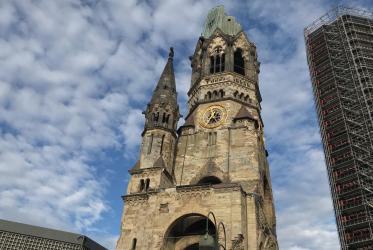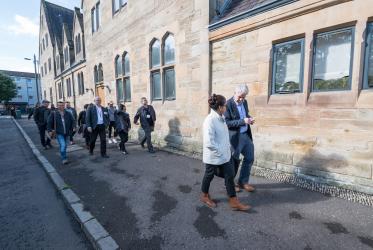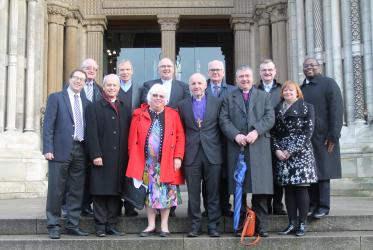Displaying 1 - 20 of 26
12 December 2019
WCC celebrates life of Archbishop John Habgood
18 March 2019
Fr Alexi - a peacemaker in Syria
21 December 2018
WCC offers condolences in wake of Great Britain attack
23 March 2017
Archbishop of Canterbury joins “Pledge2Pray” campaign
23 February 2017
One refugee’s story: from Syria to France
07 January 2016
WCC delegation visits north Ireland and border barriers
02 December 2015
WCC urges responsibility for and support to the refugees in Europe
04 September 2015















